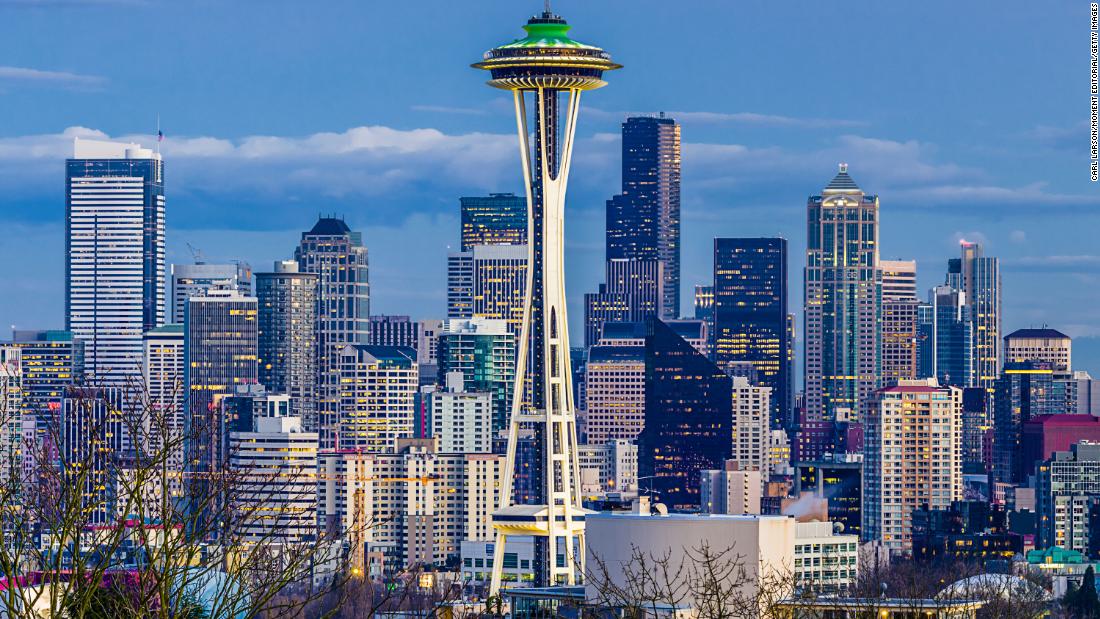[ad_1]
I asked Matassa Flores how she and the organization juggle the priorities of a metropolitan daily in a metropolitan area of 4 million people. “The story is so big in Seattle and in the region that there’s isn’t a lot else. Sometimes on other big stories you have to make hard choices but there’s no need to convince anybody right now. Our sports reporters are focused on contingency plans. Everybody is.”
That’s because Seattle has been considered the coronavirus epicenter as it is the home of 642 of the nation’s virus cases, about a quarter of the nation’s total, and 40 of the 60 deaths, as of March 14.The community is a ghost town, a boomtown now paralyzed and struggling to keep up with both the health crisis and the information challenge.
There’s only one other type of story that a newspaper would be covering that’s akin to the experience faced today by those working at The Seattle Times covering the coronavirus.That’s war. And the closest experience Matassa Flores can imagine in the paper’s history is the internment of 7,000 members of the Japanese community in Seattle early during World War II.
“In our newsroom, the biggest thing that’s surreal is that our lives as Seattleites and everything about Seattle is surreal,” she says. “There’s no one out on the streets. The city feels completely different. In the newsroom, usually when there’s a big story to cover we team up and cover it. In this case we’re all affected by it.”
While the local news world is in turmoil, the Seattle Times is reminding its community and people worried about the future of news why it matters so much. “People seem really grateful for what we’re doing,” Matassa Flores says. “We are extremely fortunate to work for a family owned independent paper.”
They’re offering factsheets, a “visual guide” to the virus, a school closing tracker, constant updates, rich graphics, opinion columns — a stunning display of the capabilities of a local news company when its community needs it more than ever. “People seem grateful for what we’re doing,” Matassa Flores says modestly. “People would not be getting the information they need from anywhere else if we didn’t have the size staff we do.”
The controlling owner is Frank Blethen whose family has had the paper for four generations. It is one of the highest-profile major newspapers in the country that’s still independent and locally owned. The Times touts two breaking news Pulitzer Prizes over the past decade. Blethen has for many years been an outspoken crusader for policies that can keep independent newspapers afloat. While The Seattle Times hangs on, it still is facing the possibility of further cuts to a news operation that according to Matassa Flores was twice as big as it is now at the dawn of the century.
The national spotlight focused on The Seattle Times might aid its chances for survival, although the likely downturn from the coronavirus tragedy in Seattle’s economic fortunes can’t help. What does have real tangible meaning is the spotlight on the extraordinary value of a vital newspaper, hanging on in times of both community crisis and its own financial peril at a time when two thirds of the nation’s counties have no newspaper and a fifth of US newspapers have shut down, according to a University of North Carolina Hussman School of Journalism and Media study.
While Matassa Flores and her colleagues think about their daily challenges, around maintaining six feet distance from those they interview in person, photographing those who are quarantined from afar, trying to figure out what’s going on in hospitals that reporters can’t always actually observe while at the same time providing as much of what she calls “utilitarian” coverage as possible they are now doing everything but printing the paper from their home offices (they fully analyzed and upgraded the technology access of every staff member).
“We live the story we are covering,” she says. It is hard to imagine Seattle without this resource. Perhaps her newspaper’s work in informing the public and saving lives in Seattle will accelerate a slowly developing national conversation about news. It shouldn’t take tragedy to do so.
[ad_2]
Source link



